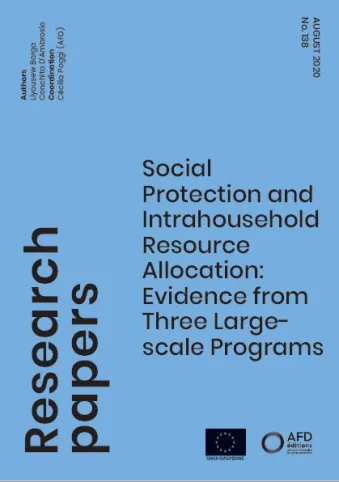Share the page
Social Protection and Intrahousehold Resource Allocation: Evidence from Three Large-scale Programs
Published on

Social-protection schemes have become a popular form of government intervention in developing countries. The empirical evidence is still scant on their effectiveness in reducing within-household inequality and poverty. To this aim, we use data from the Young Lives cohort study, and evaluate the role played in it by three large-scale social-protection schemes i) the Productive Safety Net Program (PSNP) in Ethiopia, ii) the National Rural Employment Guarantee Scheme (NREGS) in India iii) the Juntos conditional cash transfer program in Peru. We find that these programs fail to reach all poor individuals since undernourished as even poor children are spread across the distribution of household per capita expenditure. Participating in the programs, however, has some positive impact. Program participant households do experience a reduction in child undernutrition once enrolled in the programs. At the same time, these programs are successful to divert resources from adults to children, and hence to reduce within-household inequality.
Useful Information
-
Authors
-
Liyousew BORGA, Conchita D'AMBROSIO
-
Coordinators
-
Edition
-
138
-
Number of pages
-
51
-
ISSN
-
2492 - 2846
-
Collection
-
Research Papers
